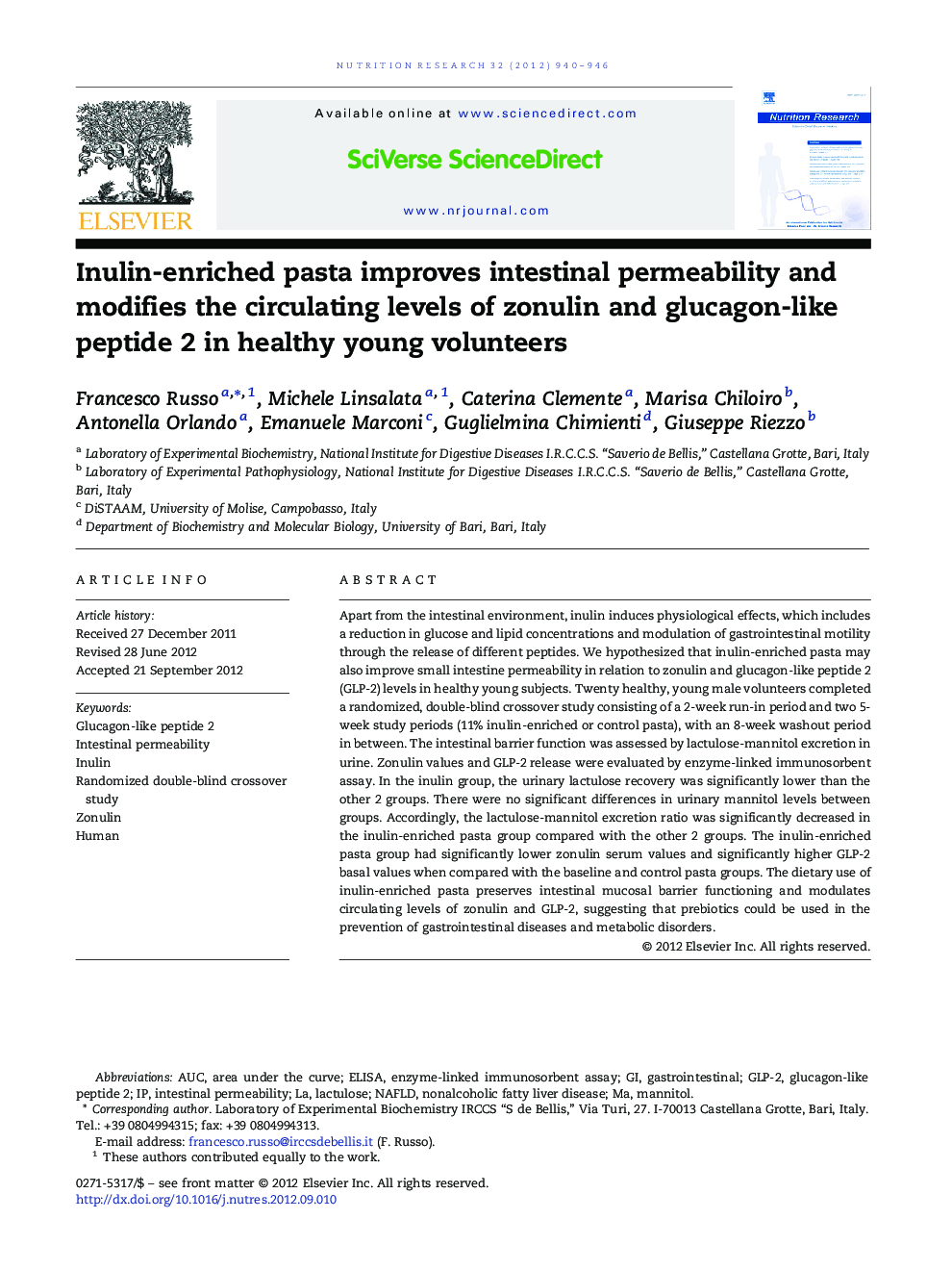| Article ID | Journal | Published Year | Pages | File Type |
|---|---|---|---|---|
| 5904614 | Nutrition Research | 2012 | 7 Pages |
Apart from the intestinal environment, inulin induces physiological effects, which includes a reduction in glucose and lipid concentrations and modulation of gastrointestinal motility through the release of different peptides. We hypothesized that inulin-enriched pasta may also improve small intestine permeability in relation to zonulin and glucagon-like peptide 2 (GLP-2) levels in healthy young subjects. Twenty healthy, young male volunteers completed a randomized, double-blind crossover study consisting of a 2-week run-in period and two 5-week study periods (11% inulin-enriched or control pasta), with an 8-week washout period in between. The intestinal barrier function was assessed by lactulose-mannitol excretion in urine. Zonulin values and GLP-2 release were evaluated by enzyme-linked immunosorbent assay. In the inulin group, the urinary lactulose recovery was significantly lower than the other 2 groups. There were no significant differences in urinary mannitol levels between groups. Accordingly, the lactulose-mannitol excretion ratio was significantly decreased in the inulin-enriched pasta group compared with the other 2 groups. The inulin-enriched pasta group had significantly lower zonulin serum values and significantly higher GLP-2 basal values when compared with the baseline and control pasta groups. The dietary use of inulin-enriched pasta preserves intestinal mucosal barrier functioning and modulates circulating levels of zonulin and GLP-2, suggesting that prebiotics could be used in the prevention of gastrointestinal diseases and metabolic disorders.
